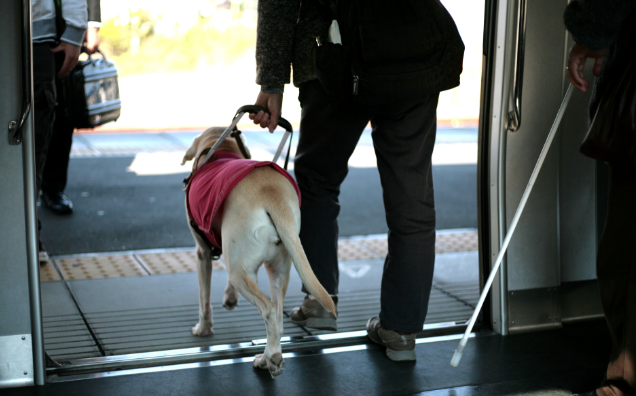- TOP >
- Efforts of HITOWA Care Service Co.,Ltd.
Efforts of HITOWA Care Service Co.,Ltd. ARK HILLS South Towe, 1-4-7,Roppongi, Minato-ku, Tokyo
Enrich People's Lives with Both Virtual and Real-Life Tourism
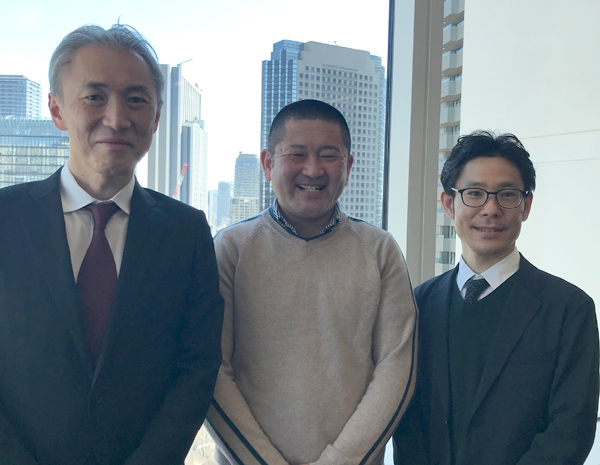
Services That Go One Step Further, Created by Combining a Travel Business with Our Competitive Nursing Care Business
Headquartered in Roppongi, Tokyo, HITOWA Care Service Co., Ltd. runs nursing facilities all over Japan under the brand IRISE. It serves about 7,000 residents in total. The company operates a variety of facilities to meet users' needs, including residential care homes, small-scale multifunctional homes, day services, and group homes.
Placing importance on users' quality of life, these facilities provide support to help them live enriched lives. They do this by bringing in know-how from outside, such as online grocery shopping, yoga, and haircut and travel services that require licenses to operate. We spoke to Mr. Yoshiteru Hakamada, President of the company, Mr. Tomokazu Matsumura and Mr. Masaki Shimizu of the Business Promotion Department about their specific initiatives.

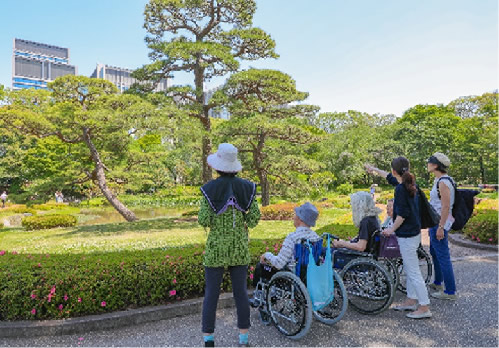
Seamlessly Connect Nursing Care and Travel, to Offer Tourism as Assisted Living
What makes our company unique is that we offer both nursing care and travel services. In doing so, we regard travel as assisted living, which is an extension of nursing care. Whether they need an oxygen supply, what food they eat, whether they have any allergies, their walking ability, whether they have any underlying conditions, and so on ... by understanding each user's condition, we can provide them with support tailored to their individual needs. That's our strength. By creating optimized travel plans for each individual user and providing a service that is compliant with the Travel Agency Act and other such laws, we meet users' needs from both the perspective of care and the perspective of travel.
Each user has a care plan. We prepare one for each person who needs care so they can lead a high-quality, self-reliant life. The care plans include nursing care services, so they can be seamlessly used for travel as well. For example, suppose someone has bad legs but wants to climb a mountain. In this case, information necessary to ensure a safe climb, such as their walking ability, range of leg mobility, and everyday meals, is shared within the company. This enables us to provide support that'll fit his/her needs all the way to the top of the mountain.
We also put a lot of effort into what our travel plans, including seasonal food to creative pottery, try-it-yourself indigo dyeing in Asakusa, and more, offering a vast array of plans that are full of opportunities to explore culture and the arts. Some people with dementia can remember the old days even though their short-term memories are weak. They tell us, "This brings back memories," or "I've been here before." We mainly offer compact day trips now, but users have also been asking for overnight ones, so we'd like to expand the menu by also offering them overnight and two-night trips.

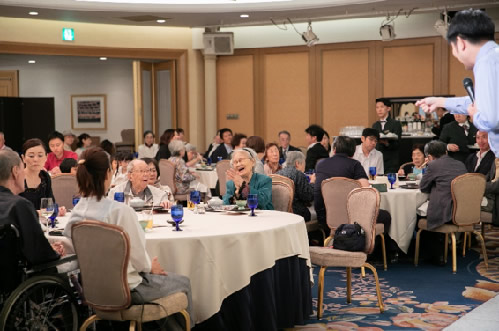
Value Human Resources so We Can Respond to Individual Detailed Requests As Well
Some elderly people who need care say it's not even fun to be alive. Even people like these may become more positive about rehabilitation when they have a goal in the form of traveling. Apart from that, we want to meet individual wishes like "I want to attend my grandchild's wedding ceremony" by taking the person directly to where they want to go.
Promoting accessible tourism also involves some challenges. First, there's a hard-aspect challenge, namely, the human resource issue. We understand that users want to travel with staff they know, but the fact is that in terms of running the facility, it's difficult for staff to go off on trips with each and every user who wants them to. We need to develop more skilled staff who can escort them. In this regard, given that the younger generations aren't generally aware that the nursing care industry is also involved in the travel business, we'd like to actively advertise the fact in order to eliminate the shortage in human resources.
In terms of the soft aspects, the challenge we face is that there's no centralized place to turn to for barrier-free information about the travel destinations. Details like whether the road is level and paved and availability of multi-purpose restrooms are essential information for wheelchair users, but they're difficult to check. It might also be necessary for stakeholders in the promotion of accessible tourism who have a lot of information sources to work together and start putting together a centralized database.

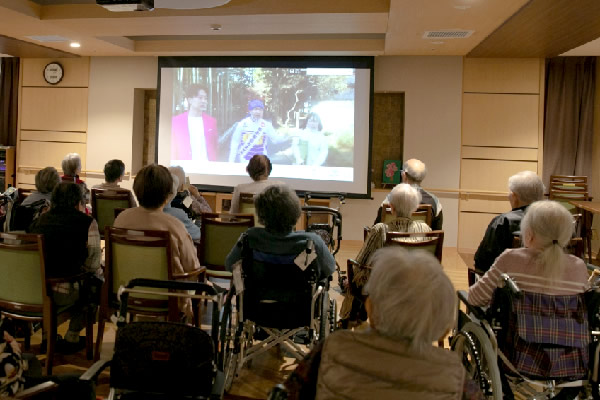
Enjoy Far-Away Places Safely Even During the Pandemic through Online Tours
Since the novel coronavirus outbreak, we've also been putting energy into online tours using VR. While real trips can only take people to places a short distance away from the facilities, online tours let them enjoy the feeling of traveling to far-away places. This is done by having our staff go there.
Collaboration programs we run with Yoshimoto Kogyo's "Sumimasu Geinin"—young entertainers living all over the country—are very popular. We're always looking for creative ways to make things even more enjoyable, like giving quizzes during the tour. Motivating facility staff is also very important, and is also a key factor toward deepening the bonds between staff and users. We're currently planning a live stream from Kusatsu Onsen in Gunma Prefecture. We'll stream a video from Yubatake, so users can enjoy the views of the last of the snow and the steam rising from the hot springs while remaining indoors. You don’t have to worry about stairs, steps, and other dangerous places in an online tour. We think this can be called a new accessible tourism, in the sense that it lets people go to places they'd never be able to in their daily lives.
We're also devising ways to enable interactive communication, rather than just showing a video. We limit the number of participants to a maximum of 10 per home to make it easier for them and the staff to relax and talk to each other, and communicate interactively through answering the quizzes from the other side of the screen. Some people also look forward to getting local souvenirs from the places visited, so we'd like to strengthen our tie-ups with the regions involved.
We started the VR as a means to fill the gap until we can start traveling for real again, but it's brought unexpected benefits like seeing far-away places, being able to access places it'd be impossible to walk, and being easy to do—all things that real travel can't offer. All in all, it's turning into a big success. We want to offer both real and virtual travel in the future.

 social media accounts
social media accounts
Tokyo, a city that is accessible everywhere to anyone.
Sightseeing where you wish, as you wish.
This ability to travel anywhere you please makes life that much richer.
Tokyo welcomes your visit.
Here you can encounter tradition,
history, culture, nature, technology,
and, best of all, smiling faces.
Making tourism closer and more
enjoyable through accessible tourism.




